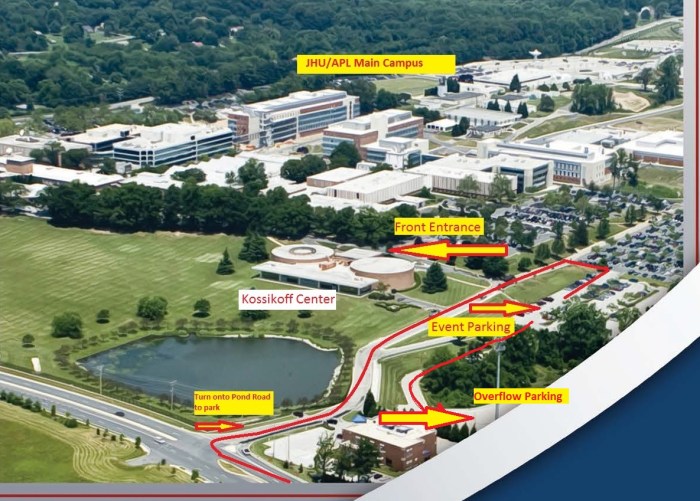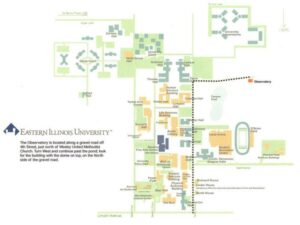Step into the vibrant world of John Hopkins University parking, where convenience meets innovation. From navigating parking regulations to exploring alternative transportation options, this guide unlocks the secrets to hassle-free campus mobility.
Dive into the intricacies of parking permits, fees, and enforcement procedures. Discover the availability of parking spaces across campuses, ensuring you find the perfect spot for your vehicle. Uncover the technological advancements that streamline the parking experience, making it effortless and efficient.
Parking Regulations and Policies
John Hopkins University (JHU) has established comprehensive parking regulations and policies to ensure the efficient and equitable use of parking spaces on campus. These regulations apply to all students, faculty, staff, and visitors.
Parking Permits and Fees
All vehicles parked on campus must display a valid JHU parking permit. Permits are issued based on affiliation and vehicle type. The cost of permits varies depending on the permit type and parking zone.
Students and faculty can purchase parking permits online through the JHU Transportation Services website. Visitors can obtain temporary parking permits from designated parking kiosks or the JHU Visitor Center.
Parking Enforcement
JHU strictly enforces parking regulations through a combination of automated license plate readers and physical patrols. Vehicles parked in violation of regulations may be subject to fines, immobilization, or towing.
To avoid penalties, it is important to familiarize yourself with the parking regulations and display a valid parking permit at all times.
Special Parking Accommodations
JHU provides special parking accommodations for individuals with disabilities, as well as for carpool and vanpool participants.
Individuals with disabilities can apply for a disability parking permit through the JHU Office of Accessibility Services. Carpool and vanpool participants can register their vehicles with JHU Transportation Services to receive discounted parking rates.
Parking Availability and Locations

John Hopkins University offers ample parking options across its campuses to accommodate the needs of students, faculty, staff, and visitors. These spaces are strategically located to provide convenient access to academic buildings, research facilities, and other campus amenities.
Parking Locations
Parking spaces are available in various locations, including surface lots, garages, and designated areas. Surface lots are typically found in open areas near buildings, while garages offer covered parking with multiple levels. Designated areas are reserved for specific purposes, such as disabled parking or carpool parking.
- Homewood Campus: Surface lots and garages are available throughout the campus, with designated areas for visitors and permit holders.
- East Baltimore Campus: Garages and surface lots are located near the medical facilities, with convenient access to the hospital and research buildings.
- Peabody Campus: Surface lots are primarily available near the music and dance facilities.
- APL Campus: Surface lots and garages are available for employees and visitors.
Parking Availability
Parking availability varies depending on the time of day, day of the week, and special events. During peak hours, such as morning and afternoon commutes, parking spaces may be limited. Special events, such as conferences or sporting events, can also impact parking availability.
To ensure a smooth parking experience, it is recommended to arrive early or consider alternative transportation options, such as public transportation, ride-sharing, or biking.
Parking Fees and Payment Options

Parking fees at Johns Hopkins University vary depending on the parking zone and permit type. The university offers several payment options for your convenience, including online payment, mobile apps, and cash machines.
Long-term parking permits are available at a discounted rate compared to daily or hourly parking. Carpooling is also encouraged, with designated carpool parking spaces available at certain locations.
Parking Fees
- Zone A: $20 per day, $100 per week, $300 per month
- Zone B: $15 per day, $75 per week, $200 per month
- Zone C: $10 per day, $50 per week, $150 per month
- Visitor Parking: $15 per day, $75 per week
Payment Options
- Online Payment: Visit the JHU Parking Services website to pay for parking online using a credit or debit card.
- Mobile Apps: Download the JHU Parking App to pay for parking using your smartphone.
- Cash Machines: Cash machines are located in various parking garages and lots on campus.
Discounts and Incentives
- Long-Term Parking Permits: Save up to 20% on parking costs by purchasing a long-term parking permit.
- Carpooling: Carpoolers are eligible for designated carpool parking spaces and reduced parking fees.
Transportation Alternatives to Parking
For those seeking alternatives to parking at Johns Hopkins University, various convenient and sustainable transportation options are available. These include public transportation routes, shuttle services, bike-sharing programs, and designated pick-up and drop-off locations for ride-sharing services.
Public Transportation
Johns Hopkins University is well-connected to public transportation, with numerous bus lines and a light rail station nearby. The Charm City Circulator provides free shuttle service within the downtown area, including stops near the university’s campuses.
Shuttle Services
The university operates a free shuttle service, the Homewood-Peabody-JHMI Shuttle, which connects the Homewood, Peabody, and JHMI campuses. The shuttle runs on a regular schedule, making it a convenient option for students, faculty, and staff.
Bike-Sharing Programs
Bike-sharing programs, such as Charm City Bike, offer a convenient and affordable way to get around the university and the surrounding area. Docking stations are located throughout the city, including near Johns Hopkins campuses.
Ride-Sharing Services
Ride-sharing services, such as Uber and Lyft, provide a flexible and convenient transportation option. Designated pick-up and drop-off locations are available on campus for these services.
Parking Technology and Innovation

John Hopkins University is embracing technological advancements to enhance the parking experience for its community. These initiatives aim to streamline parking processes, improve efficiency, and provide real-time information to users.
Mobile Applications
The university offers a mobile app that allows users to reserve parking spaces in advance, receive real-time updates on parking availability, and make payments conveniently. The app integrates with the university’s parking management system, providing a seamless experience for parking management.
Sensors and Cameras
Parking occupancy is monitored using sensors and cameras installed in parking lots and garages. These devices provide real-time data on parking space availability, enabling the university to optimize parking allocation and improve the efficiency of parking operations.
FAQ Explained
What are the parking regulations for students?
Students can obtain parking permits specific to their campus and parking zone. Fees vary depending on the permit type and location.
Where can I find a map of parking locations?
An interactive map showcasing all parking locations, including surface lots, garages, and designated areas, is available on the university’s website.
Are there any discounts for long-term parking?
Yes, discounted rates are offered for long-term parking permits purchased in advance. Details and eligibility criteria can be found on the university’s parking website.
What alternative transportation options are available?
John Hopkins University offers a range of alternative transportation options, including public transportation routes, shuttle services, and bike-sharing programs. Designated pick-up and drop-off locations for ride-sharing services are also available.




